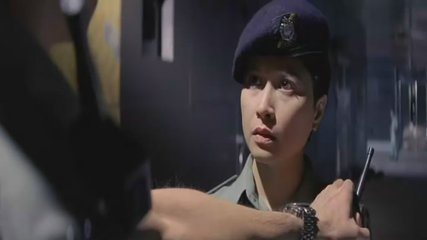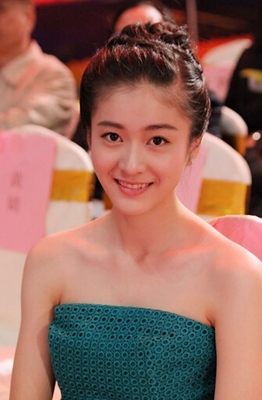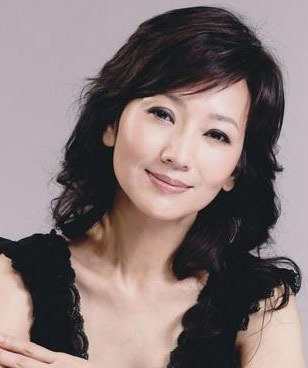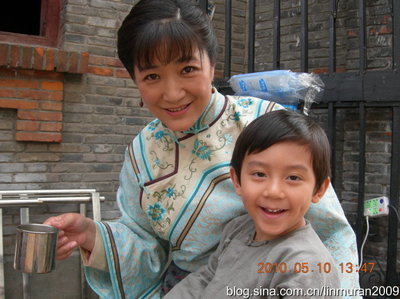Portraitof an Actress
女演员肖像
ByVirginia Woolf
弗吉尼亚·伍尔夫
When she came on to thestage as Lady Cicely in Captain Brassbound's Conversion,the stage collapsed like a house of cards and all the lime-lightswere extinguished. When she spoke it was as if someone drew a bowover a ripe, richly seasoned ‘cello’; it grated, it glowed, and itgrowled. Then she stopped speaking. She put on her glasses. Shegazed intently at the back of a settee. She had forgotten her part.But did it matter? Speaking or silent she was Lady Cicely — or wasit Ellen Terry? At any rate, she filled the stage and all the otheractors were put out, as electric lights are put out in the sun.
当她扮演的《布拉斯庞德上尉的转变》中西塞莉夫人一角出现在舞台上时,那舞台好象忽然间不存在了,她就是中心人物,她的光彩遮蔽了其他所有的演员。她说着台词就像风干硬木制成的大提琴发出的声响;声音激昂、热情而响亮。然后她停止了说话,戴上眼镜。她聚精会地神凝视着长椅的靠背,她忘词了。但这重要吗?说话或沉默她都是西塞莉夫人,会变成爱伦·泰瑞吗?不管怎样,她出现在舞台上,便成为了观众的焦点,所有的其他演员都黯然失色了,正如电灯在阳光下失去了光亮一样。
Yet this pause when she forgot what Lady Cicelysaid next was significant. It was a sign not that she was losingher memory and past her prime, as some said. It was a sign thatLady Cicely was not a part that suited her. Her son Gordon Craig,insists that she only forgot her part when there was somethinguncongenial in the words, when some speck of grit had got into themarvelous machine of her genius. When the part was congenial whenshe was Shakespeare’s Portia, Desdemona, Ophelia, every word, everycomma was consumed. Even her eye-lashes acted. Her body lost itsweight. Her son, a mere boy, could lift her in his arms. ‘I am notmyself,’ she said. ‘Something comes upon me… I am always-in-theair, light and bodiless.’ We, who can only remember her as LadyCicely on the little stage at the Court Theatre, only rememberwhat, compared with her Ophelia or her Portia, was a picturepostcard compared with the great Velasquez in thegallery.
然而她忘记了西塞莉夫人接下来要说什么这一停顿意味深长。正如一些人说的那样,没有迹象表明她正在失去她的记忆力,而且过了自己的全盛时期。这表明西塞莉夫人这一角色不适合她。她的儿子戈登·克雷格,坚持认为她只是在台词不适宜的时候忘了她的角色,那不过是几颗小砂砾掉入了她那天才的、非凡的机器之中。当角色适宜时,她就是莎士比亚剧中的波西亚、苔丝狄蒙娜、奥菲莉娅,每句词,每个停顿都使人着迷,甚至她的眼睫毛都会表演。她的体重下降了很多,她儿子,只不过一个男孩而已,用双手就能把她提起来。‘我不行了。’她说。‘我遇到一些事…… 我总是飘浮在空中,轻而无形。’与她饰演的奥菲莉亚或波西亚相比,我们谁能只记住在宫廷剧院的小舞台上她出演的西塞莉夫人?正如与画廊中伟大的委拉斯凯兹相比,谁又会只记住那些个美术明信片呢?
It is the fate of actors to leave only picturepostcards behind them. Every night when thecurtain goes down the beautiful colored canvas is rubbed out. Whatremains is at best only a wavering, insubstantial phantom—a verballife on the lips of the living. Ellen Terry was well aware of it.She tried herself, overcome by the greatness of Irving as Hamletand indignant at the caricatures of his detractors, to describewhat she remembered. It was in vain. She dropped her pen indespair. ‘Oh God, that I were a writer!’ she cried, ‘Surelya writercould not string words together about Henry Irving’s Hamlet and saynothing, nothing,’ it never struck her, humble as shewas, and obsessed by her lack of book learning, that she was, amongother things, a write. It never occurred toher when she wrote her autobiography, or scribbled page after pageto Bernard Shaw late at night, dead tired after a rehearsal thatshe was ‘writing’. The words in her beautiful rapidhandbubbled off her pen. With dashes and notes ofexclamation she tried to give them the very tone and stress of thespoken word. It is true, she could not build a house with words,one room opening out of another, and a staircase connecting thewhole. But whatever she took up became in her warm, sensitive graspa tool. If it was a rolling-pin, she made perfect pastry. If it wasa carving knife, perfect slices fell from the leg of mutton. If itwere a pen, words peeled off, some broken, some suspended inmid-air, but all far more expressive than the tapping of theprofessional typewriter.
演员注定了在他们身后只会留下一些剧照明信片。每天晚上当幕布落下时,绚烂的景象便消失了。留下的东西最多只有踌躇和不真实的幻觉—一种人们茶余饭后谈论的话题。爱伦·泰瑞很了解这点。为了叙述她所记忆的东西,她自己尝试过去克服欧文饰演的哈姆雷特的巨大影响,而且对批评欧文的那些人们非常愤怒,但都徒劳无效。她绝望地扔掉了笔。‘噢,上帝,我曾是一名作家!’她叫喊到,‘对于享利·欧文扮演的哈姆雷特而言,作家肯定不能把那些台词拼凑在一起,而且保持沉默,绝不能。’这从未影响到她,虽然她谦卑,而且受到读书不多的困扰,但除去其它方面的因素以外,她是一名作家。在她写自传时,或是在深夜里不停地‘写’彩排方案,累得要命,一页页地给萧伯纳写信时,上述情况都从未出现过。文字从她那美丽的巧手中的笔端流淌而出。她用破折号和惊叹号的注释设法给文字以非常的语气以及口语的重音。的确,她的文字不总是构建的那么完美,但她所做的工作成为了她热情、敏锐掌控的一种工具。如果那工具是根擀面杖,那么她就能制作出完美的点心。如果工具是把切肉刀,那么她就能从羊腿上切下一片完美的肉片。如果工具是一支笔,那便落笔独特,其中虽有些缺陷,有些晦涩,但从整体看远比那些专业的写手更具感染力。
With her pen, then, at odds and ends of time shehas painted a self-portrait. It is not an Academy portrait, glazed,framed, complete. It is rather a bundle of loose leaves upon eachof which she has dashed off a sketch for a portrait—here a nose,here an arm, here a foot, and there a mere scribble in the margin.The sketches done in different moods, from different angles,sometimes contradict each other. The nose cannot belong to theeyes; the arm is out of all proportion to the foot. It is difficultto assemble them. And there are blank pages, too. Some veryimportant features are left out. There was a self she did not know,a gap she could not fill.
当时,她用钢笔,利用空闲的时间描绘着自画像。那不是学院派的那种光滑、有外框的、完整的画像。她随意完成的肖像素描,有点像那一束束散落的树叶—这儿画着鼻子,这里是手臂,那儿是脚,而且页边处也很潦草。那些素描是在不同的情绪下完成的,取自不同的视角,有时还相互矛盾。那鼻子与眼睛不协调;手臂与脚完全不成比例。想把它们组合在一起很难。而且留得空白页面太多了。有些非常重要的特征没有画上,画得连她自己都不知道是谁了,她无法填补这一缺憾。
Nevertheless, the first sketch is definite enough.It is the sketch of her childhood. She was born to the stage. Thestage was her cradle, her nursery. When other little girls werebeing taught sums and pot-hooks she was being cuffed and buffetedinto the practice of her profession. Her ears were boxed, hermuscles suppled. All day she was hard at work on the boards. Lateat night when other children were safe in bed she was stumblingalong the dark streets wrapped in her father’s cloak. And the darkstreet with its curtained windows was nothing but a sham to thatlittle professional actress, and the rough and tumble life on theboards was her home, her reality. ‘It’s all such sham there’, shewrote—meaning by ‘there’ what she called ‘life inhouses’—‘sham—here all is real, warm and kind—we live a lovelyspiritual life here.’
不过第一个肖像画得还行,那是她儿时的肖像。她出生在舞台上,她在舞台上度过了自己的童年。当其他的女孩们开始学习算术时,她却在被迫练习她的专业技能。她挨过耳光,身体的肌肉练得柔软灵活。她整天都在舞台上忙碌着。深夜,当其他孩子都上床睡觉时,她却在黑暗的街道上,裹着父亲的斗蓬蹒跚而行。窗帘遮住了所有的窗户,那黑暗的街道除了一位貌似小巧的职业女演员以外,什么都没有,而那乱作一团的舞台生活就是她的家,她的现实。‘那儿一切都是那么虚幻’,她写到—意思是‘那儿’她称为的‘在那些房间里的生活’—‘虚幻—在那儿的一切都是真实、温暖而令人感激的—在这里我们生活在一种令人愉快的精神生活中。’
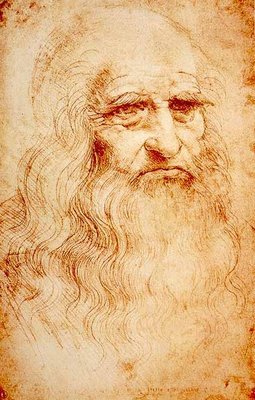
That is the first sketch. But turn to the nextpage. The child born to the stage has become a wife. She is marriedat sixteen to an elderly famous painter. The theatre has gone; itslights are out and in its place is a quiet studio in a garden. Inits place is a world full of pictures and ‘gentle artistic peoplewith quiet voices and elegant manners’. She sits mum in her cornerwhile the famous elderly people talk over her head in quiet voices.She is content to wash her husband’s brushes; to sit to him; toplay her simple tunes on the piano to him while he paints. In theevening she wanders over the Downs with the great poet, Tennyson.‘I was in Heaven,’ she wrote. ‘I never had one single pang ofregret for the theatre.’ If only it could have lasted! Butsomehow—here a blank page intervenes—she was an incongruous elementin that quiet studio. She was too young, too vigorous, too vital,perhaps. At any rate, the marriage was a failure.
那是第一幅肖像,而接下来便是下一幅。那个出生在舞台的孩子已经变成了一位妻子。她在十六岁时嫁给了一位年过中年的著名画家。她离开了剧院,没有了灯光,生活的场所变成了花园中安静的画室。在那儿是一个充满了画的世界和一些言谈轻柔、举止文雅、彬彬有礼的艺术人群。当那位著名的年过中年的人用轻柔的声音谈论着她不懂的事情时,她静静地坐在她的角落里。她满足于为其丈夫干洗画笔的事;坐等他来画素描;当他作画时用钢琴为他弹奏一首简单的乐曲。夜晚她伴随着伟大诗人坦尼森漫步在唐斯。‘我在天堂,’她写到‘对于剧院的生活我从未有过一次后悔’。要是能够继续那该多好呵!但不知怎么搞地,这里的生活却是一片空白—在那安静的画室中她是一个不和谐的元素。也许,她太年轻了,精力太旺盛,太有活力了。不管怎样,她的婚姻失败了。
And so , skipping a page or two, we come to the next sketchshe is a mother now. two adorable children claim all her devotion.She is living in the depths of the country, in the heart ofdomesticity she is up at six. She scrubs, she cooks, shesews,she teaches the children. Sheharnesses the pony. She fetches the milk. And again she isperfectly happy. To live with children in a cottage, driving herlittle cart about the lanes, going to church on Sunday in blue andwhite cotton—that is the ideal life! She asks no more than that itshall go on like that for ever and ever. But one day the wheelcomes off the pony cart. Huntsmen in pink leap over the hedge. Oneof them dismounts and offers help. He looks at the girl in a bluefrock and exclaims: ‘Good God! It’s Nelly’! She looks at thehuntsman in pink and cries, ‘Charles Reade!’ and so, all in ajiffy, back she goes to the stage, and to forty pounds a week.For—that is the reason she gives—the bailiffs are in the house. Shemust make money.
所以,跳过一页或两页,我们看看她目前作为母亲的下一幅肖像。两个孩子成为了她全部的热爱。她生活在远离伦敦的乡下,以家庭生活为中心,六点起床,擦擦洗洗、准备饭菜、缝缝补补、教育孩子,给小马套上用具,挤牛奶。她再一次获得了完美的快乐。同孩子们生活在村舍中,驾着小马车行进在乡间的路上,周日身穿青花棉布衣去教堂礼拜—那就是理想的生活!她没有更多的奢望,希望生活永远这样下去。但是有一天,她的马车车轮掉了,一群身体强壮的猎人跳过篱笆墙,其中一位下马并帮助了她。他瞧着那身穿兰色连衣裙的姑娘,大声说:天哪,是内丽!她看着那位身体强壮的猎人,叫喊着‘查理·里德!’因此,所有的这一切瞬间促使她又重新回到了舞台上,而且一周赚四十英磅。对此她给出的理由是—执行官在家等着她还债,她必须赚钱。
At this point a very blank page confronts us.There is a gulf which we can only cross at a venture. Two sketchesface each other; Ellen Terry in blue cotton among the hens; EllenTerry robed and crowned as Lady Macbeth on the stage of the Lyceum.The two sketches are contradictory yet they are both of the samewoman. She hates the stage; yet she adores it. She worships herchildren; yet she forsakes them. She would like to live for everamong pigs and ducks in the open; yet she spends the rest of herlife among actors and actresses in the limelight. Her own attemptto explain the discrepancy is hardly convincing. ‘I have alwaysbeen more woman than artist’ she says. Irving put the theatrefirst. ‘He had none of what I may call my bourgeois qualities—thelove being in love, the love of a home, the dislike ofsolitude.’She tries to persuade us that she was anordinarywoman enough; a better hand at pastrythan most; an adept at keeping houe; with an eye for colour, ataste for furniture,and a positivepassion for washing children's heads. If she went back to the stageit was because--weell, what else could she do when the bailiffswere in the house?
对于我们来说,此时此刻遇到了很大的空白页。有一个海湾,我们也只有冒险横渡了。两幅肖像彼此面对;一幅是在鸡舍中身穿兰布衣服的爱伦·泰瑞;另一幅是在专业的舞台上身着礼服,头戴王冠扮演麦克白夫人的爱伦·泰瑞。两幅肖像矛盾,然而她们却是同一个女人。她憎恨舞台,却又喜欢它。她热爱孩子,却又放弃了他们。她愿意永远生活在野外猪鸭成群的环境里;却在银光灯下,在男女演员们中度过了自己的余生。她试图解释这种矛盾,可几乎令人很难信服。‘我一直是女人多于艺术家’她说。欧文把舞台放在第一位。‘他没有我所拥有的中产阶级的品质—爱就是爱,爱家庭,不喜欢孤独。’她试图劝说我们她完全是一个普通的女人;比多数女人做点心的手艺都要好;善长家务,注重色彩,喜爱家具,而且很乐意为孩子们洗头。如果她回到了舞台那是因为—噢,当执行官等在家里催着她还债,她还能做些什么呢?
This is the little sketch that she offers us tofill in the gap between the two Ellen Terrys—Ellen the mother, andEllen the actress. But here we remember her warning: ’Why, even Imyself know little or nothing of my real life.’ There was somethingin her that she did not understand; something that came surging upfrom the depths and swept her away in its clutches. The voice sheheard in the lane was not the voice of Charles Reade; nor was itthe voice of the bailiffs. It was the voice of her genius; theurgent call of something that she could not define, could notsuppress, and must obey. So she left her children and followed thevoice back the stage, back to the Lyceum, back to a long life ofincessant toil, anguish, and glory.
这是她提供给我们的在两个爱伦·泰瑞间弥合缺陷的小人物的肖像—一个是作为母亲的爱伦,一个是作为女演员的爱伦。但在此我们记得她的提醒:‘哎,甚至连我自己都不了解我的真实生活。’她并不了解自己面临的值得重视的事情;它们来自心灵深处,而且她无法掌控。她在小路上听到的声音并不是查理·里德的声音,也不是执行官的声音,那是她天赋的表达;她无法确定那些急切呼唤的意图,她无法抗拒,而且必须服从。因此她离开了孩子们,跟着那声音回到了舞台上,回归了专业,回到了没有停歇、苦恼以及荣耀的漫长的生活中。
But, having gazed at the full-length portrait ofEllen terry as Sargent painted her, robed and crowned as LadyMacbeth, turn to the next page. It is done from another angle. Penin hand, she is seated at her desk. A volume of Shakespeare liesbefore her. It is open at Cymbeline, and she is makingcareful notes in the margin. The part of Imogen presents greatproblems. She is, she says, ‘on the rack’ about her interpretation.Perhaps Bernard Shaw can throw light upon the question? A letterfrom the brilliant young critic of the Saturday Reviewliesbeside Shakespeare. She has never met him but for years they havewritten to each other, intimately, ardently, disputatiously, someof the best letters in the language. He says the most outrageousthings. He compares dear Henry to an ogre, and Ellen to a captivechained in his cage. But Ellen Terry is quitecapable of holding her own against Bernard Shaw. She scoldshim,laughs at him,fondles him, and contradicts him. Shehas a curious sympathy for the advanced views that Henry Irvingabominated. But what suggestions has the brilliant critic to makeabout Imogen? None apparently that she has not already thought forherself. She is as close and critical a student of Shakespeare ashe is. She has studied every line, weighed the meaning of eachword, experimented with every gesture. Each of those golden momentswhen she becomes bodiless, not herself, is the result of months ofminute and careful study. ‘Art,’ she quotes, ‘needs that which wecan give her, I assure you.’ In fact this mutable woman, allinstinct, and sensation, is as painstaking a student and as carefulof the dignity of her art as Flaubert himself.
然而,仔细观察过萨特金画的爱伦·泰瑞身着礼服,头戴王冠扮演的麦克白夫人的全幅肖像,我们来看看下一幅画面。那是从另一个视角展现的情景。她手中拿着一支笔,坐在桌旁。一册莎士比亚戏剧集摆放在她面前,打开的页面是《辛白林》,她在页边的空白处仔细做了注释。在伊莫金的部分提出了许多问题。她说,对于她的疑问她是‘十分痛苦的’。也许萧伯纳可以解释这些疑问?在莎士比亚戏剧集的旁边有封来自《星期六评论》有才气的年青评论家的信件。她从未与他见过面,但多年来他们一直进行着亲切、热烈、或有争论的信函往来,有些信件从语言层面看实为佳作。他说了最令人吃惊的事情。他把尊敬的享利比成怪物,而爱伦是他锁在笼中的俘虏。但是爱伦·泰瑞在对阵萧伯纳时却是很能把握自己的。她训斥他,嘲笑他,爱抚他并且反驳他。她对享利痛恨的那些高见有着异乎寻常的同情,但对那些有才气的评论家针对伊莫金这个人物进行的评论有过什么建议吗?显然没有,她已经不考虑自己了。她像他一样成为了亲切而爱挑剔的莎士比亚的学者。她研究着每行文字,权衡着每个字的含意,用各种动作加以验证。在那些黄金时刻她得以脱胎换骨,忘却了自我,那每一个时刻都是日积月累和仔细研究的结果。‘艺术’她引用道,‘需要我们付出努力才能更加完美,我向你保证。’其实这是个性情不定的女人,拥有所有的本能,以及感觉,如同一个勤勉的学生,也像福楼拜本人那样,为她艺术的尊严小心谨慎。
But once more the expression on thatserious face changes. She works like a slave—none harder. But sheis quick to tell Mr. Shaw that she does not work with her brainonly. She is not in the least clever. Indeed, she is happy shetells him, ‘not to be clever’. She stresses the point with ajab of her pen. ‘You clever people’, as she calls him and hisfriends, ‘miss so much, mar so much’. As for education, she neverhad a day’s schooling in her life. As far as she can see, but theproblem baffles her, the main spring of her art is imagination.Visit madhouses, if you like; take notes; observe; study endlessly.But first, imagine. And so she takes her part away from the booksout into the woods. Rambling down grassy rides, she lives her partuntil she is it. If a word jars or grates, she must re-think it,rewrite it. Then when every phrase is her own, and every gesturespontaneous, out she comes on to the stage and is Imogen, Ophelia,Desdemona.
然而在那表情严肃的脸上再一次发生了改变。她拼命工作着—没有人比她更卖力地工作了。而她却很快地告知了萧伯纳先生,她没有工作,只是想了些问题。她一点也不聪明。的确,她告诉他‘不那么聪明’,她很快乐。她强调了她所表达的重点。‘你们有那么多的聪明人’,就像她称呼他和他的朋友们那样,‘不能明白,不会欣赏’。说到教育,她一生中从未进过一天学校。至于她目前的状况,除了教育问题困扰着她以外,她艺术的主要活力来自想象力。走访精神病院,如果你愿意的话;做些笔记,写点心得,不断地进行研究,但首先要有想象力。所以她没有去啃书本,而是将自己投身于生活的森林之中。她漫步于林间小路,把自己视同为剧本中的女主角,与角色一起分享着她的情感体验。如果台词拗口或不流畅,她一定会思考再三,会重写。于是当每句措词都了然于心,每个动作都自然而然的时候,她会出现在舞台上,展现的便是伊莫金,奥菲莉娅,苔丝狄蒙娜。
But isshe, even when the great moments are on her, a great actress? Shedoubts it. ‘I cared more for love and life,’ she says. Her face,too, has been no help to her. She cannot sustain emotion. Certainlyshe is not a great tragic actress. Now and again, perhaps, she hasacted some comic part to perfection. But even while she analysesherself, as one artist to another, the sunslants upon an old kitchen chair. 'thank the Lord for my eyes!’ sheexclaims. What a world of joy her eyes have brought her! Gazing atthe old ‘rush-bottomed, sturydy-legged, wavy-backed’ chair, thestage is gone, the limelight are out, the famous actress isforgotten.
然而,甚至在她处于最为辉煌的时刻时,她是一位伟大的演员吗?她对此表示怀疑。‘我更喜欢爱情和生活,’她说道。她的相貌也没有给她带来什么帮助,她无法维持情感。当然她不是一位伟大的悲剧演员,也许,她时而扮演的一些喜剧角色很完美。但即使她像一名艺术家分析自身时,她的注意力都会被一把厨房里的照射着斜阳的老旧椅子所吸引,‘感谢上帝赐予我双眼!’她叫喊着。她的眼睛带给她了一个多么快乐的世界!凝视着那把‘座板上翘,椅腿结实,靠背呈现波浪型’的椅子,那曾经的舞台消失了,聚光灯息灭了,那著名的女演员被人们遗忘了。
Which, then, of allthese women is the real Ellen Terry? How are we to put thescattered sketches together? Is she mother, wife, cook, critic,actress, or should she have been, after all, a painter? Each partseems the right part until she throws it aside and plays another.Something of Ellen Terry it seems overflowed every part andremained unacted. Shakespeare could not fit her; nor Ibsen; norShaw. The stage could not hold her; nor the nursery. But there is,after all, a greater dramatist than Shakespeare, Ibsen, or Shaw.There is Nature. Here is so vast a stage, and so innumerable acompany of actors, that for the most part she fobs them off with atag or two. They come on and they go off without breaking theranks. But now and again Nature creates a new part, an originalpart. The actors who act that part always defy our attempts to namethem. They will not act the stock parts—they forget the words, theyimprovise others of their own. But when they come on the stagefalls like a pack of cards and the limelight are extinguished. Thatwas Ellen Terry’s fate—to act a new part. And thus while otheractors are remembered because they were Hamlet, Phedre, orCleopatra, Ellen Terry is remembered because she was EllenTerry.
那么,这些女人中哪一个才是真正的爱伦·泰瑞呢?我们如何把这些散乱的肖像组合在一起呢?究竟她应该是位母亲,妻子,厨师,评论家,女演员呢,还是一位画家呢?在她放弃这个角色转向另一个角色前,每个角色似乎都是合适的。说到爱伦·泰瑞身上的天性,看起来用于每个角色都绰绰有余,但这些天性从未在她的生活和事业中表现出来。莎士比亚不适合她;易普生不适合她;萧伯纳也不适合她。那舞台没有留住她,托儿所也留不住她。但毕竟有了一个比莎士比亚、易普生或萧伯纳更伟大的剧作家。天性所定,那是一个如此广阔的舞台,有着那么多数不清的陪伴的演员。天性所限演员只能扮演不多的角色。他们的角色无关紧要,去留对那舞台影响不大。但是,时而天性会塑造新的角色,创造一个原型。而那些塑造了原型角色的演员常常很难转型。他们不会演那些普通的角色—他们会忘记台词,会即兴扮演自己。然而当他们走上舞台,面对成堆的台词,舞台生涯便结束了。那就是爱伦·泰瑞的宿命—扮演一个新角色。因此,当其他演员由于扮演了哈姆雷特,费德尔或者克利欧佩特拉而被人们记住时,爱伦·泰瑞却因她是爱伦·泰瑞被人们纪念。
From The Moment and otherEessys, 1947
选自《瞬间及其它随笔》1947
2012年11月12日译自《Readings in Modern EnglishProse》下册
About theauthor
Virginia Woolf (1882--1941) was an Englishnovelist and critic. She was educated at home by her father LesilieStephen, who was a well-known scholar. While she lived in Londonafter her father's death, she became the centre of what we oftencall the 'Bloomsbury' group, including Roger Fry, L.M. Keynes,Lytton Strachey and Clive Bell. Her brilliant literary career wascut short by her death in 1941. Among her best-known novels areMrs. Dalloway, To the Lighthouse and The Waves. This accountof Ellen Terry was written in 1941 but did not appear in book formuntil 1947.
 爱华网
爱华网